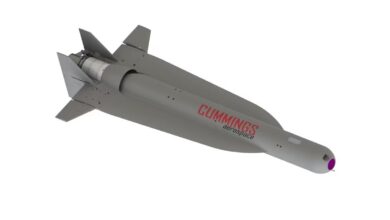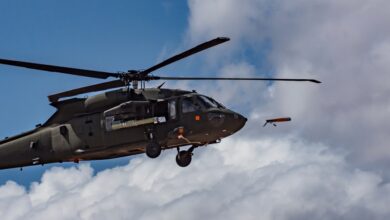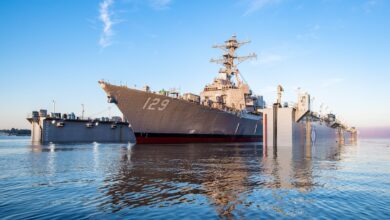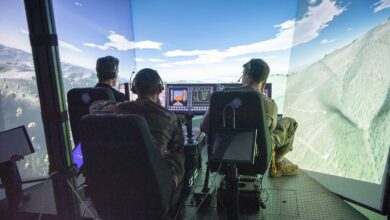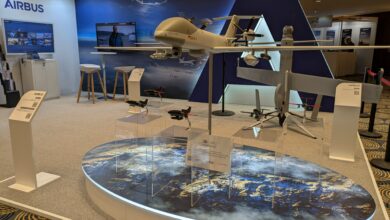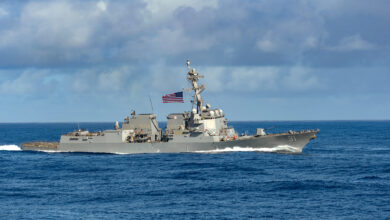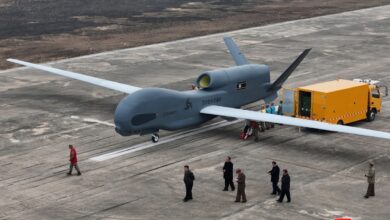Northrop Grumman Delivers Upgraded MQ-4C Triton to US Navy
Northrop Grumman delivered its first upgraded MQ-4C Triton reconnaissance drone to the US Navy this week.
The delivery comes more than two years after the service awarded Northrop a $33.75 million contract to upgrade two baseline Tritons with the Integrated Functional Capability (IFC)-4 multi-intelligence configuration in July 2019.
The first IFC-4 high-altitude, long-endurance aircraft completed its maiden flight in June last year.
The Upgrade
The two aircraft are scheduled to achieve initial operational capability in 2023, after which they will be integrated with the navy’s Maritime Intelligence, Surveillance, Reconnaissance, and Targeting transition plan, replacing the EP-3E Orion electronic reconnaissance aircraft.
The navy plans to procure over 60 Tritons in the coming decades
Persistent Maritime Unmanned Aircraft Systems program manager Capt. Dan Mackin listed the features included in the upgrade, such as “360-degree AESA maritime radar, full-motion EO/IR (Electro-Optical/Infra-Red) video streaming, high-altitude, long-endurance, full-spectrum signals intelligence and the pipes to send multiple data types to ships, aircraft, and intelligence community ground stations.”
According to Seapower Magazine, the upgrade includes the Minotaur mission system currently installed on the EP-3E.
Citing Mackin, the outlet added that the navy plans to introduce artificial intelligence and machine learning into the aircraft by 2025, including “Wideband Tactical Targeting Network Technology, enhanced radar identification modes, protected satellite communications. M-Code and counter-electronic attack.”By 2027, the aircraft will be made to work without GPS and satellite communications.
Features
Based on Northrop’s Global Hawk platform, the Triton features a reinforced airframe and tail for additional payload and protection from bird collision and gust load, along with de-icing and lightning protection systems.
According to the manufacturer, the Triton features “allow the aircraft to descend and ascend through harsh maritime weather environments to gain a closer view of ships and other targets at sea when needed.”



